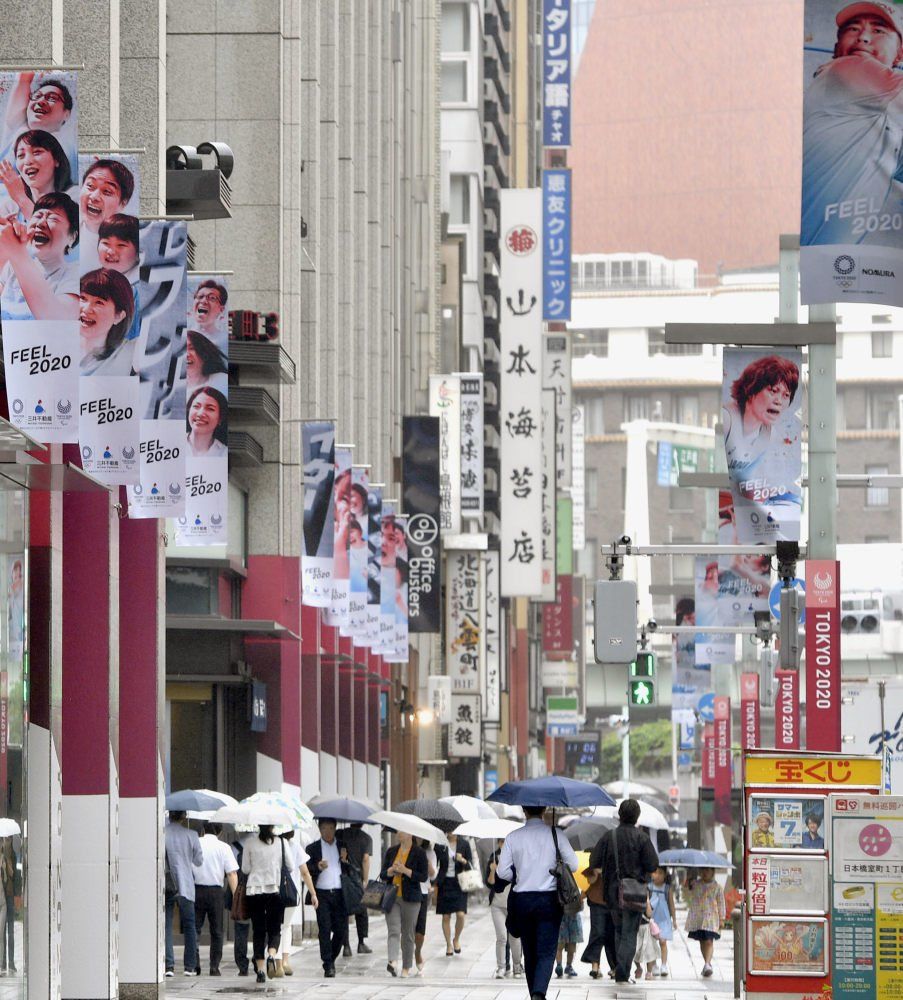
How Hong Kong can keep its edge after G7 tax deal
THE RACE
A race to the bottom is never good news in any business context, as I and a former colleague discovered around 10 years ago when we decided to make the move out of stockbroking – and competing with brokers offering negative commission rates – to “value added” fee-based research, which they could not offer.
What reminded me of those difficult times, and prompted this article, was the agreement reached on June 5 by the G7 on minimum corporate tax rates.
Under a new proposal from the G7, every member country will be compelled to maintain a corporate tax rate no lower than 15 per cent. Even as this is working its way into binding rules that will prevent a tax “race to the bottom”, the member states of the G7, and soon the G20, have been told where the bottom will be.
Faced with big bills post Covid-19, governments will be looking at ways to boost tax revenues, and are likely to offer special tax deals to big businesses.
For example, London post-Brexit needs to secure its financial industry, which currently contributes 16 per cent of GDP, and it may use tax concessions to do that. Elsewhere, the Tokyo metropolitan government, led by Governor Yuriko Koike, has been waiting for a good reason to ring-fence the city’s Nihombashi district to offer supertax deals to asset managers looking to set up their headquarters there, or relocate from Singapore or Hong Kong.
 Tokyo’s Nihombashi district pictured in 2019, showing promotional
banners for the postponed 2020 Tokyo Olympics and Paralympics.
Tokyo’s Nihombashi district pictured in 2019, showing promotional
banners for the postponed 2020 Tokyo Olympics and Paralympics.
If it wasn’t bad enough already, I believe Hong Kong’s footprint in asset management is now under a new threat. With our business tax rate of between 15 per cent and 16.5 per cent – or lower when taking into account multinational corporate group tax assessments – we probably won the gold medal in the race to the bottom in Asia.
And the playing field with G7 countries is not level. In terms of international labour laws; the stability of the legal system; and protections against fraud, corruption and modern-day slavery, Hong Kong is looking lacklustre next to the competition.
Throw into the mix the rate at which businesses are looking to exit Hong Kong for all the other reasons we read about daily and we are in trouble.
I hate lists of problems without suggestions for solutions, so I have a few proposals to try and level the playing field before commencing a new round of tax rate arbitrage:
* Strengthen labour laws, benefits and workforce protection. Make Hong Kong a better place to work to try to slow the rate at which people leave the city. On an individual basis, people will work where they are paid well and feel safe.
* Ensure that Hong Kong’s legal system retains some elements of common law in the long term. This has already been suggested by the legal profession to keep Hong Kong in good standing internationally.
* Reinforce laws that tackle commercial misconduct. In some instances this will require new legislation.
Why does all this matter? When it comes to competing for assets to manage, it would be naive to not expect a certain amount of “creative” tax avoidance from wealth managers to ensure their performance is better than everyone else’s, especially those using overseas tax structures. That’s fine as long as it all remains honest, because if it doesn’t and is illegal, then the wealthy client becomes liable.
Furthermore, not all family offices are licensed and subject to regulation as a specific category of asset managers, single family offices generally are not, and this can lead to severe damage to financial markets, such as we have recently seen with the Archegos Capital Management affair.
WHISTLE-BLOWER PROTECTIONS
Unlike in G7 countries such as the UK where “protected disclosure” is clearly defined, Hong Kong and Singapore currently have no specific legislation that defines whistle-blowing, or how a whistle-blower would be protected. There are also no laws in place that require companies to have a whistle-blowing programme, which is surprising given that the integrity of wealth managers is paramount, as they are susceptible to fraud, corruption and harassment. This is something G7 economies have soundly addressed.
MODERN-DAY SLAVERY
This may sound a bit odd, but the absence of a modern-day slavery law may hamper Hong Kong’s future competitiveness. We don’t really think of slavery being associated with finance, but the methods used to enslave a person can be exactly the same no matter how much you earn. And once enslaved, someone can be coerced into doing something they shouldn’t: become party to a fraud, for example, or be pressured into not doing something that they should, such as reporting fraud to the regulator.
 We don’t really think of slavery being associated with finance, but the
methods used to enslave a person can be exactly the same no matter how
much you earn.
We don’t really think of slavery being associated with finance, but the
methods used to enslave a person can be exactly the same no matter how
much you earn.
According to the Hong Kong-based Mekong Club, there are six ways to put a victim in a compromised position and keep them compliant. Three, I think, are relevant to finance:
* Oppressive or illegitimate contracts. These may simply be contracts that are presented under duress, perhaps to people recently fired who do not have the means to go to court to contest them. I came across an example recently, a 20 page employment contract with excessive restrictive covenants signed by a stockbroker friend of mine.
* Physical and emotional abuse. This can be obvious or subtle, inappropriate or manipulative, and can compound in or outside the workplace, and social media
makes it easy. That is why harassment laws are so tough in places like the US and the UK.
* Threats of violence, directed towards a victim or their family. It may even be just a perceived threat when entwined in the affairs of a powerful family.
COUNT ON CHAN?
Finance Secretary Paul Chan Mo-po
’s plans to make changes in Hong Kong’s tax rules to attract family offices from Singapore have possibly received a sideswipe from the G7. Family offices are categorised as companies for tax purposes and are charged profits tax, but the Inland Revenue Department does not ask for withholding tax, capital gains tax, estate tax, wine tax, and taxes on dividends or interest received on savings.
As service providers managing tax structures and family trusts, family offices are not subject to anti-money-laundering regulations. Only the licensed individuals who work for them are, such as solicitors, accountants, and the like. Family offices also cannot be spot checked. According to the UK’s National Crime Agency, family offices, through lax regulation, are highly exposed to professional enablers who are employed to move illicit funds around the world, out of easy reach of tax and anti-money-laundering reporting.
Invest HK has set up a ‘one stop shop’ to help family offices establish themselves in Hong Kong, with a presence in Guangzhou and Beijing to attract Chinese money, and an office in Brussels to attract money from wealthy European families.
TIME IS RUNNING OUT
All businesses, large and small, are exposed to fraud and corruption. When things go wrong and misconduct is uncovered, the depths of the problem can be quite alarming. What sometimes surprises me is the amount of money rich families have amassed, and yet they remain on the fiddle. Take for example the trouble the Samsung family got themselves into over the past decade and the massive penalties that continue to follow them: huge fines for tax evasion and jail terms for fraud, bribery and stock manipulation.
The family finances were blown wide open by a whistle-blower. He was Samsung’s chief lawyer, but once his identity was revealed he found no more legal work and ended up working the cash register in a branch of a local bakery chain.
If Chan’s mission to attract family wealth to Hong Kong is to be successful, the possibility of getting punished for doing the right thing by whistle-blowing, or even being in a jurisdiction that allows employee coercion, is simply not acceptable. Introducing protections would be relatively easy and help to level the playing field with G7 countries. However, coming up with a new “value-add” for Hong Kong to compete will require a bit more creativity.










